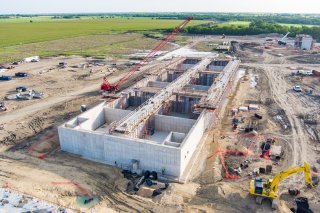WIFIA Program Announcements
EPA Announces WIFIA Loans to Texas and Illinois

In December 2025, EPA closed WIFIA loans with the City of Pflugerville, Texas and City of Joliet, Illinois:
- City of Pflugerville (pdf) - The $176 million WIFIA loan supports drinking water and wastewater infrastructure in this growing city. In total, the City of Pflugerville has closed three WIFIA loans totaling $385 million for projects to ensure current and future residents have reliable drinking water and wastewater services.
- City of Joliet - Phase 3 (pdf) - The $87 million loan helps transition the city’s drinking water supply from a stressed and unsustainable aquifer. This is the third WIFIA loan for the City of Joliet under an agreement that will provide a total of $395 million in financing.
EPA Announces Several WIFIA Loans to the Pacific Northwest

Between November and December 2025, EPA announced approval of several WIFIA loans throughout the Pacific Northwest. These loans will improve vital drinking water and wastewater infrastructure in Ashland, Oregon; Rockwood, Oregon; Medford, Oregon; and King County, Washington.
Learn more about these projects:
- News Release: EPA Announces $7 Billion in Newly Available WIFIA Funding and Five New WIFIA Loan Approvals
- News Release: EPA Approves New WIFIA Loans to Strengthen Drinking Water and Wastewater Infrastructure in Oregon and Washington
- WIFIA Closed Loans Factsheets
EPA Announces Notices of Funding Availability for WIFIA and SWIFIA
EPA announced $6.5 billion in WIFIA funding available for water systems, with an additional $550 million available to states through the SWIFIA program.
To learn more about the most recent Notices of Funding Availability, visit the WIFIA Available Funding page.
